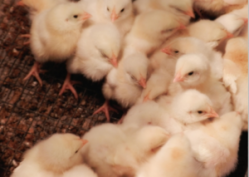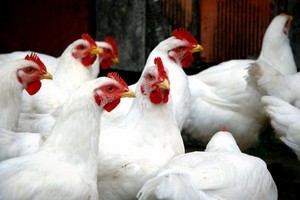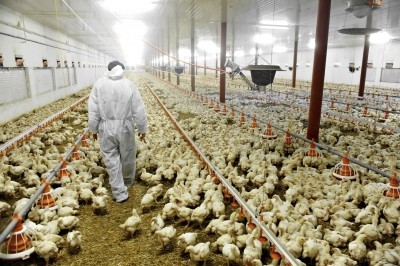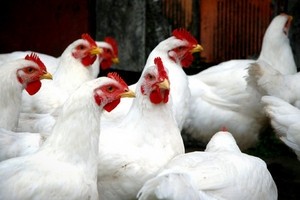FeedNavigator at EuroTier 2014
Cellulose by-product could support poultry health and productivity: Suomen Rehu

Suomen Rehu launched Progres at EuroTier last week. “We had considerable industry interest in the natural feed ingredient at Hannover,” said Juhani Vuorenmaa, R&D director at the Finnish based feed manufacturer.
The product originates from rosin, which is the protection mechanism of coniferous trees in Nordic forests, and Suomen Rehu claims it is the first company globally to develop rosin into a commercial feed ingredient.
R&D triggers
Research work on Progres has been underway for the past five years.
Vuorenmaa said the development of the product arose out of Suomen Rehu’s efforts to find workable alternatives to antibiotics in pig feed, given the Finnish industry’s migration away from such products from as far back as 1999.
R&D experts in the company were interested in exploring the benefits of rosin in terms of pathogen control and a tie-up with United Paper Mills (UPM) in Finland saw the start of research into the efficacy of tall oil in this respect, he said.
The manufacturer said in-vitro trials have shown that the product, a mixture of tall oil fatty acids and free resin acids, can reduce the growth of pathogenic Gram+ bacteria, and a study whereby broilers and turkey flocks were given feed supplemented with Progres resulted in a decline of intestinal inflammations in the birds.
Vuorenmaa said the plan now is to undertake further trials, both in-house and in research institutes, to assess its efficacy when used in the diets of other species such as calves and piglets.
“There are a lot of natural feed raw materials on the market today but comparative studies we have done with these shows the superiority of our product,” he said.
EU registration process
The R&D specialist told FeedNavigator that Progres, which is said to help meet an animal’s needs such as energy, has been registered in the EU as a feed raw material but he didn’t rule out the company trying to secure feed additive legislative status for the ingredient in the future.
“We would have to spend at least two years modifying Progres through, for example, a process of fractionation to enhance its functionality components before applying for feed additive status recognition and approval from the EU Commission.
But right now we are happy with the feed raw material classification based route to market approach we are employing, even if we currently can’t claim functional effects for the ingredient.
Also, the EFSA registration procedure is both time consuming and expensive, and limiting in that it is animal species specific,” said Vuorenmaa.
Under regulation (EC) No 767/2009, the distinction between feed materials, feed additives, and other products such as veterinary drugs has implications for the conditions for the placing of such products on the market.
“Feed materials are primarily used to meet animals’ needs, for example for energy, nutrients, minerals or dietary fibers. They are usually not chemically well-defined except for basic nutritional constituents. Effects which can be justified by scientific assessment and which are exclusive to feed additives or veterinary drugs should be excluded from the objective uses of feed materials,” notes the legislation.







